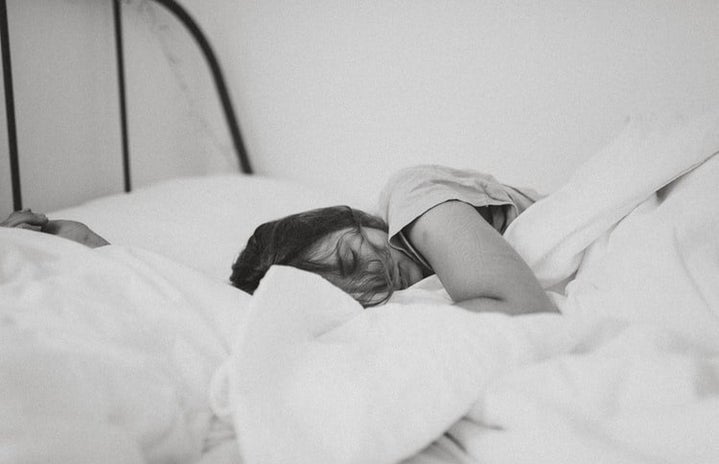As a high-achieving (and admittedly perfectionist) university student, I know very well how stressful finals season can be. You can spend hours of your life committed solely to studying and being entirely entrenched in your academic goals, and the sense of relief when you’ve finally finished the semester can be euphoric.
However, when I woke up this past Monday to start the new semester after a month of rest, relaxation, and time with loved ones, I didn’t feel refreshed. Instead, all the exhaustion of the previous semester came crashing back down and re-filled my head with anxieties about deadlines, syllabi, and readings that had to be done. I was (and still am) desperately searching for any ounce of motivation to start the semester off on a good note—it was like my body went right back into the “stressed and unhealthy student” mode that I had avoided over break.
It didn’t help that my first instinct was to blame myself. Did I not practice enough self-care over break? Should I have started preparing for the semester earlier? Am I just being lazy? The answer to all of those self-doubts was no. It wasn’t until I started doing some research that I found out that it’s not uncommon for employees and students to feel the effects of burnout even a year after they were first noticed, let alone just a month of break. While it angers me that we live in a society where this type of mental and physical stress is unavoidable in academia and the workplace, and I have essentially no control over that, there are some things that I (and you!) can control.
Recognize and validate your feelings
While it sounds cliché to advise you to “listen to your feelings”, many symptoms of burnout go unnoticed or justified. Indications of burnout can be mental, like forgetfulness, difficulty concentrating, diminished pride in your accomplishments, and an increasingly cynical outlook. These are important to make note of, but also can be physical. While I was home for break after this latest semester, I was slammed with severe sickness two separate times after being relatively healthy most of the year. I chalked it up to bad luck at the time, but research shows that a large physical sign of being burned out is lowered immunity, as well as muscle pain, headaches, and fatigue.
As soon as I recognized that what I was feeling, both in my body and mind, was because of the stress I endured over the past semester, the task of feeling better immediately became less daunting. Once you acknowledge that what you’re feeling is there for a valid reason, you’re putting yourself in a more nurturing and caring position to set yourself up for mental and physical success.
take control of what you can
Like I said earlier, it’s easy to get frustrated at your burnout when you have to return to another semester, have to turn assignments in, and have to return to the cycle of schoolwork that ruined your health in the first place. There are some things you can control, however. Taking time to sit down and write out a to-do list so your tasks seem less intimidating, actually scheduling time to nap or read, or simply refusing to do work during mealtimes are examples of steps you can take to remind yourself that you are in control of your life and have the power to make yourself feel even slightly better.
Many psychologists believe that the feeling of lack of control is one of the factors of burnout. So, while it may seem counterintuitive to schedule time to do nothing and relax when it feels like work is piling up around you, it’s best in the long run to protect your health–take it from someone who was too sick to leave their bed for days after finals because I didn’t take enough time for myself. Anyways, you’re likely to be more productive when well-rested and could end up saving time on work with enough time for relaxation.
Note what you enjoy and keep doing it
This may seem silly and self-explanatory, but it’s definitely worth trying. Keeping track of what you feel best doing—whether it be reading, hanging out with a loved one, or going on a walk—and then prioritizing it, even when you’re overwhelmed with work and it seems like the obvious thing to cut from your routine, can make a difference. It’ll be that much easier to wake up and get started on tasks in the morning when you have something tangible to look forward to in the day. Maybe you’re going on a hike, maybe you’re getting a coffee, maybe you and your friend are meeting in between classes. It doesn’t have to be time-consuming, but it will give you a motivation boost and make you happy—which is really what we all should be focusing on.
It’s truly awful that we have to be reminded to do simple things, like prioritize our happiness, in such a stressful school environment. It’s also awful that this article is all small things we can do to try and feel some type of control in our lives when we have to adhere to so many rules to try and be academically and financially successful at the same time. But, just because these changes may seem small doesn’t mean they aren’t worth trying. With luck and diligence, you may find yourself feeling better as we enter another semester.


